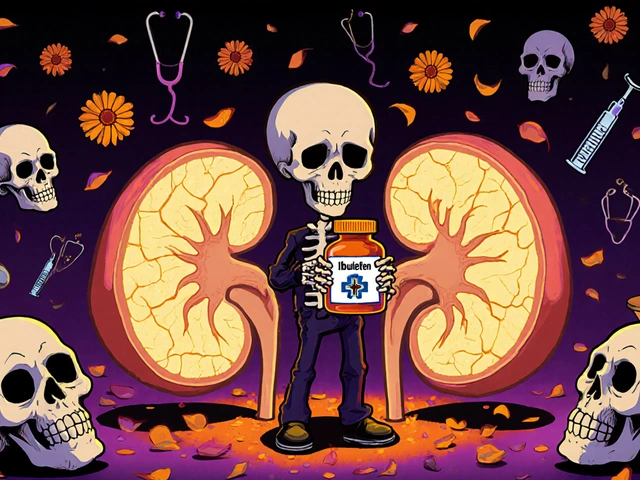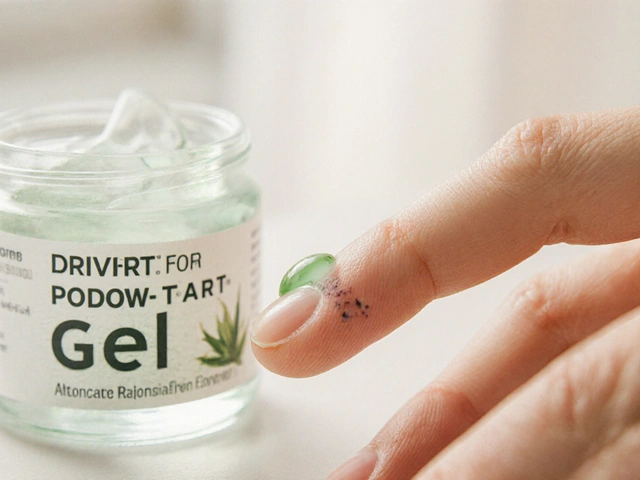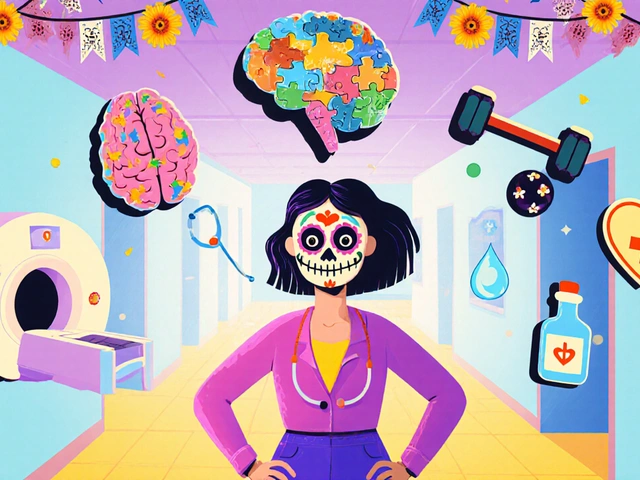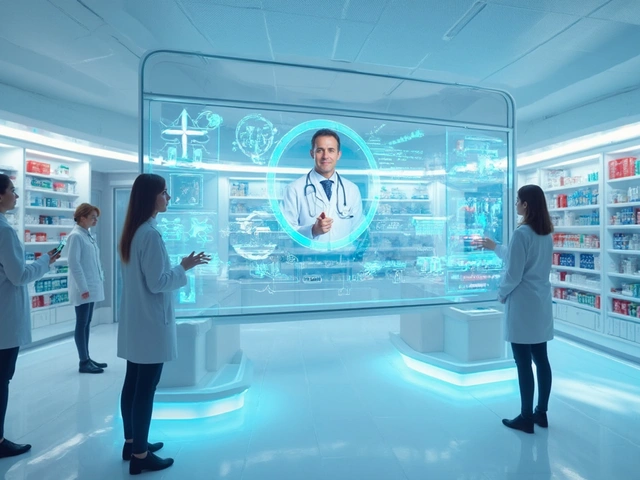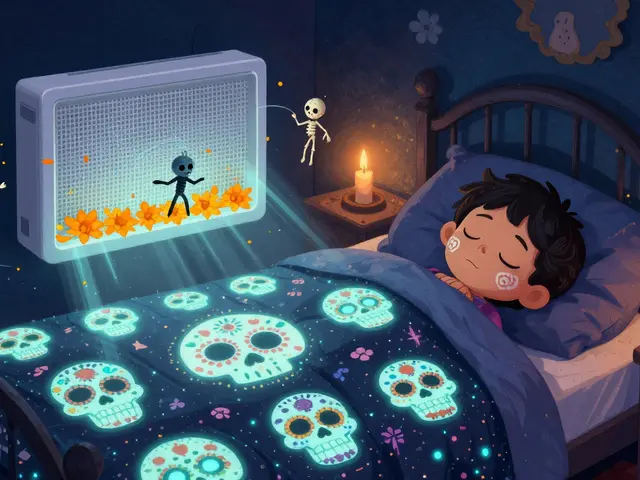NSAIDs and Kidneys: What You Need to Know Before Taking Them
When you reach for NSAIDs, nonsteroidal anti-inflammatory drugs used to reduce pain, fever, and inflammation. Also known as non-opioid painkillers, they’re one of the most common types of medication people take daily—for headaches, back pain, arthritis, or even just a sore muscle. But what most don’t realize is that these drugs can quietly stress your kidneys, organs that filter waste and regulate fluid balance in the body. Every time you take ibuprofen, naproxen, or aspirin, you’re affecting blood flow to these vital filters.
NSAIDs work by blocking enzymes that cause inflammation, but they also reduce prostaglandins that help keep blood flowing to the kidneys. Without enough blood flow, your kidneys can’t do their job properly. This isn’t a problem for healthy people taking them occasionally. But if you’re over 60, have high blood pressure, diabetes, heart failure, or already have reduced kidney function, the risk goes up fast. Studies show that regular NSAID use can cause acute kidney injury in as little as a few days for vulnerable users. And over time, it can lead to chronic kidney disease—even if you feel fine.
It’s not just the pills you buy over the counter. Many people don’t realize that some cold medicines, menstrual relief formulas, and even topical gels contain NSAIDs. If you’re taking more than one product, you could be hitting your kidneys with a double dose. And unlike liver damage, kidney harm often shows no symptoms until it’s advanced. That’s why checking in with your doctor before using NSAIDs long-term matters. Blood tests for creatinine and eGFR can catch early signs of trouble before you feel anything.
People managing arthritis, back pain, or sports injuries often rely on NSAIDs because they work. But there are alternatives. Acetaminophen is easier on the kidneys for many, though it has its own risks. Physical therapy, heat therapy, or even low-dose antidepressants for chronic pain can help reduce reliance. And if you must use NSAIDs, keep it short-term, use the lowest dose possible, and never take them on an empty stomach or without plenty of water.
Our collection of posts dives into how drugs like topiramate, a seizure and migraine medication linked to kidney stones, and blood pressure drugs like lisinopril, an ACE inhibitor that affects kidney filtration interact with renal health. You’ll find real guidance on spotting warning signs, preventing damage, and choosing safer options when your kidneys are already under strain. These aren’t theoretical warnings—they’re lessons from people who’ve been there. If you’ve been taking pain meds for months or years, this is the info you need before your next refill.
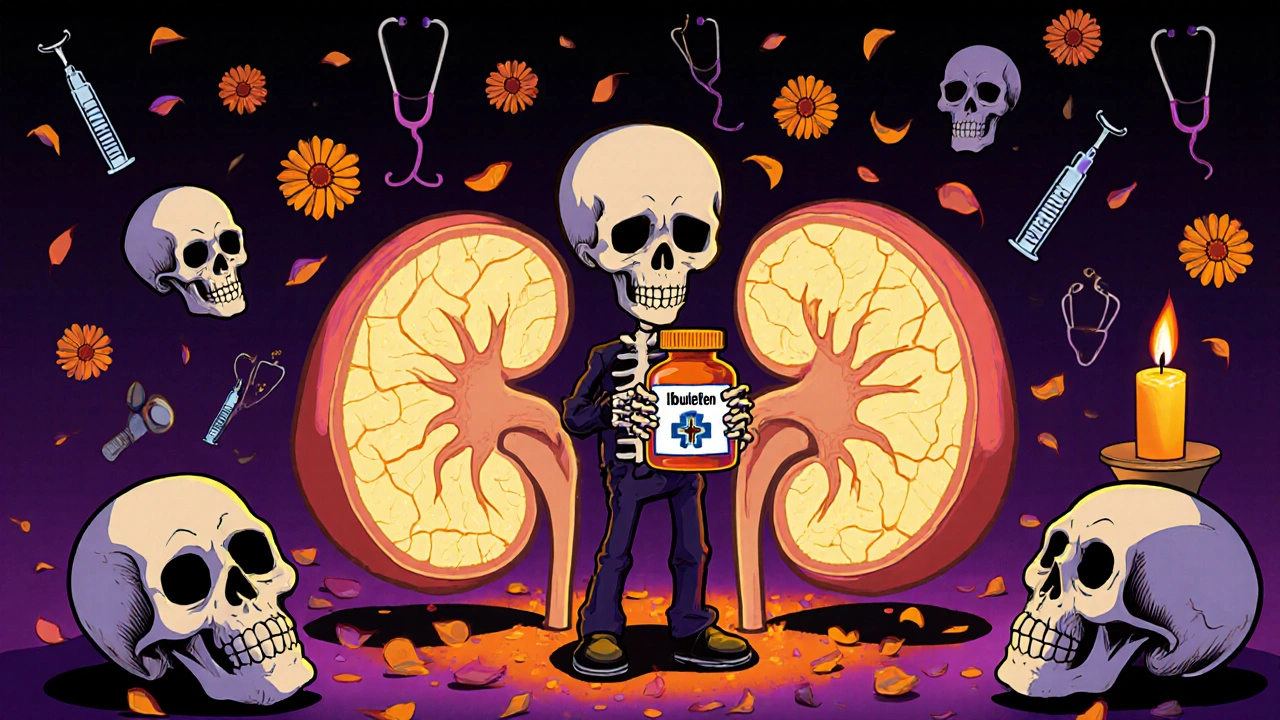
Drug-induced kidney failure is a preventable crisis caused by common medications like NSAIDs and antibiotics. Learn how to spot early signs, avoid high-risk drugs, and protect your kidneys before it's too late.
Chris Gore Oct 30, 2025
